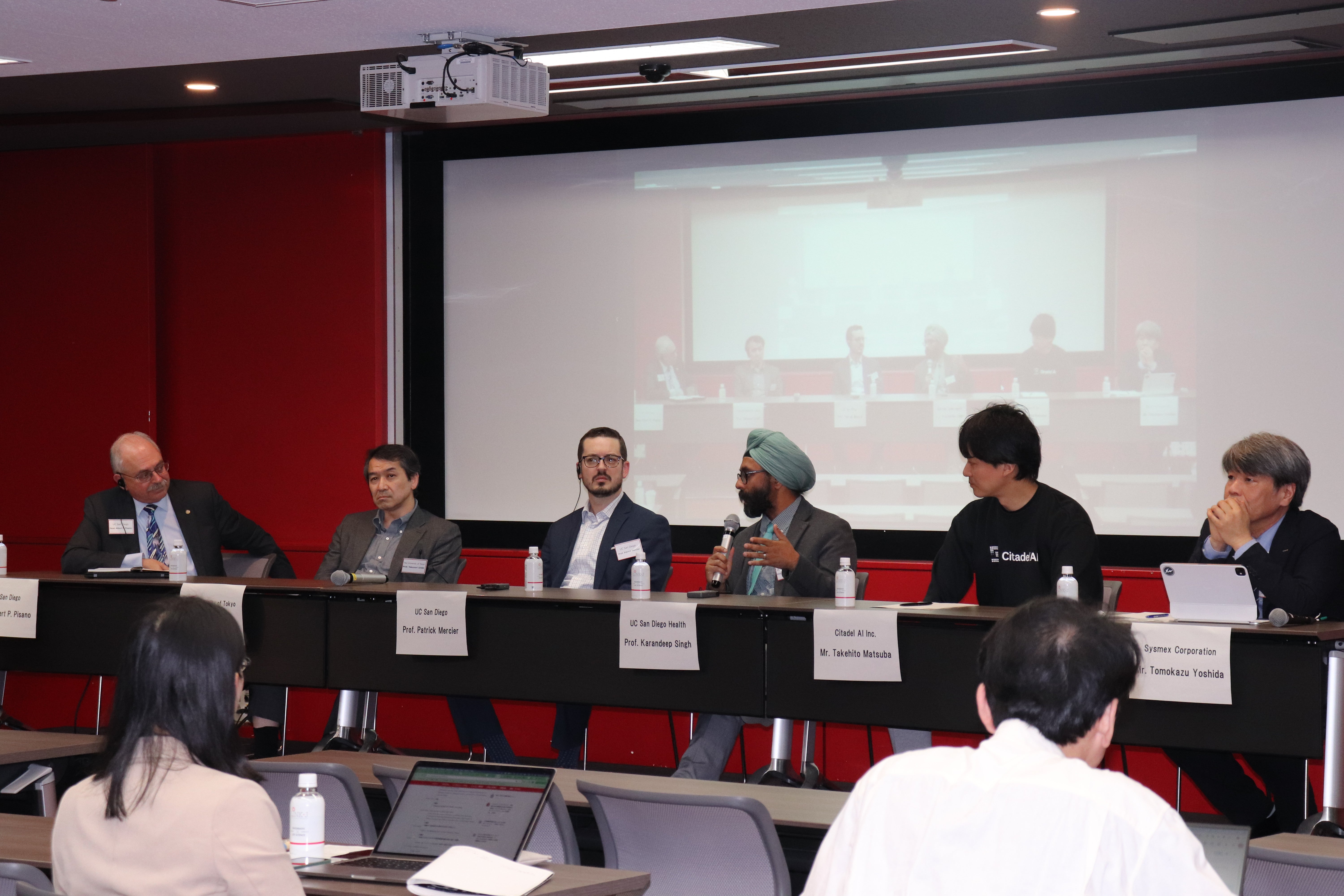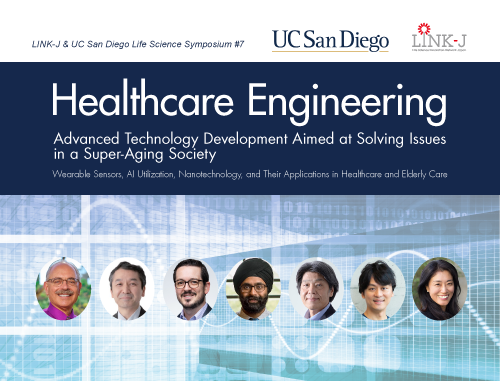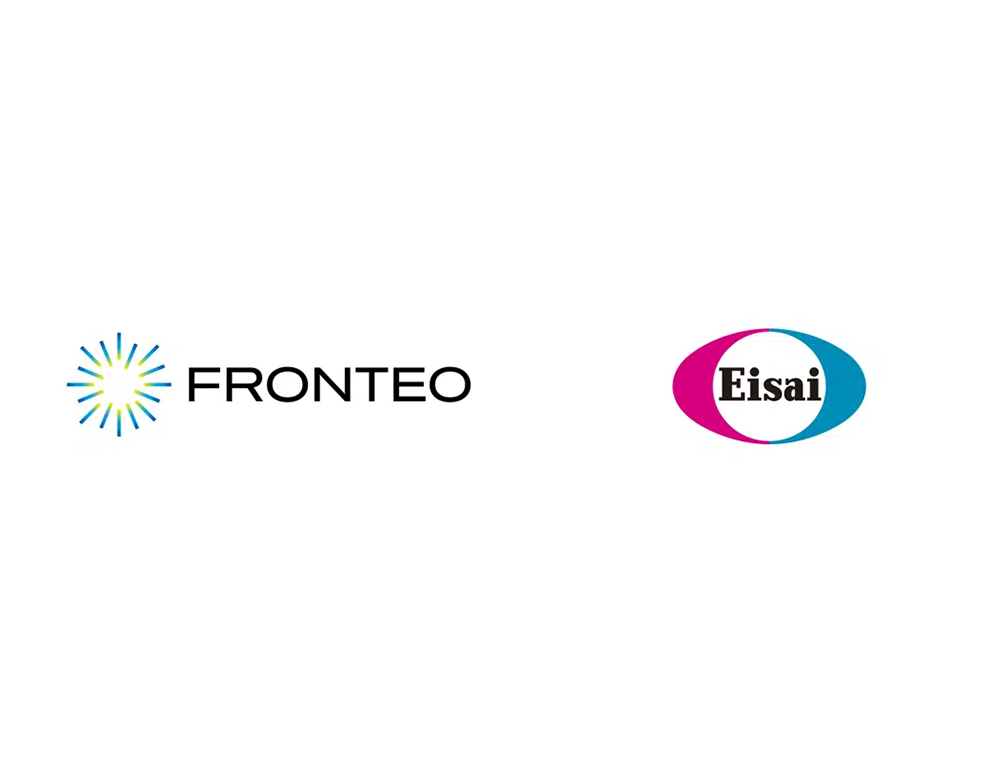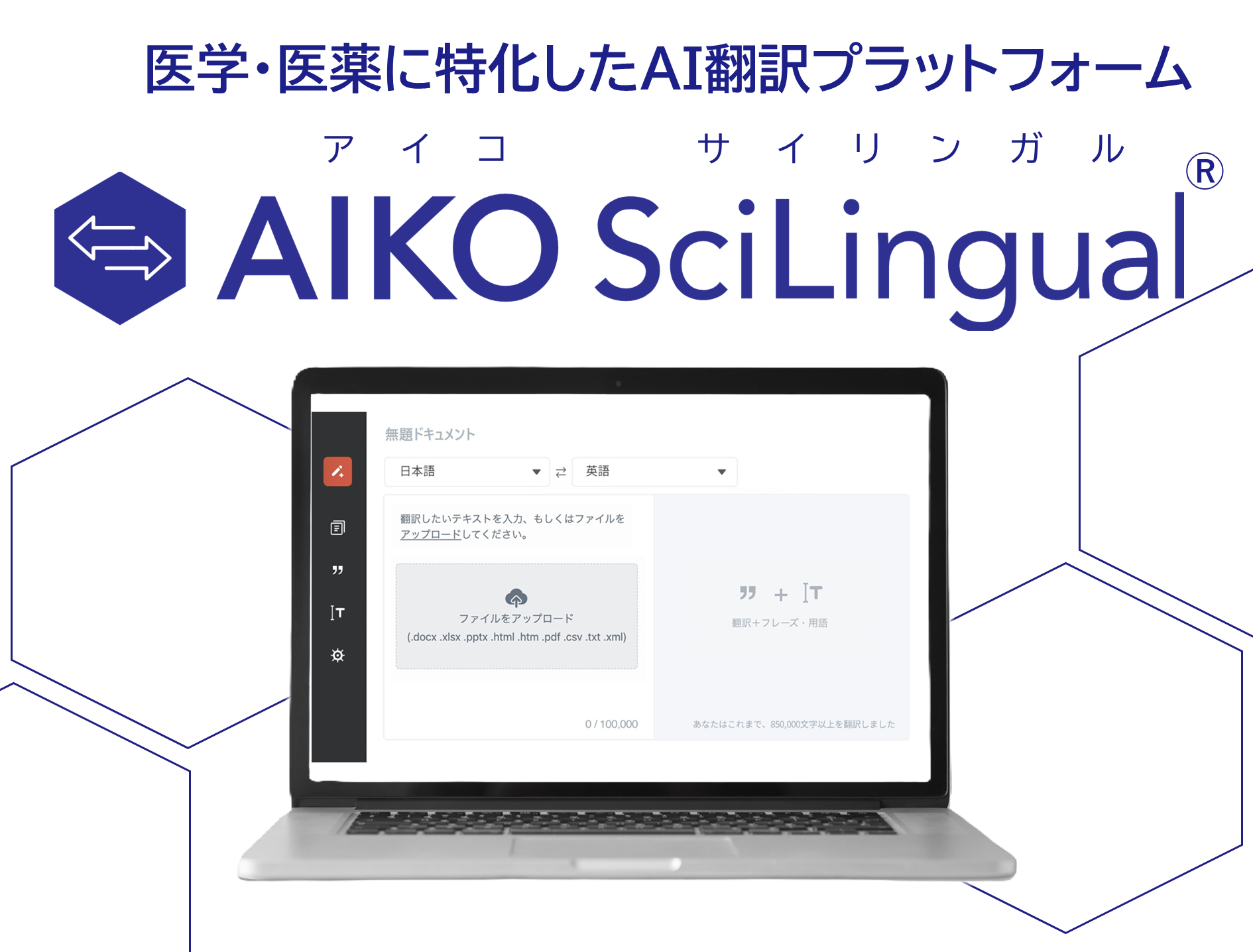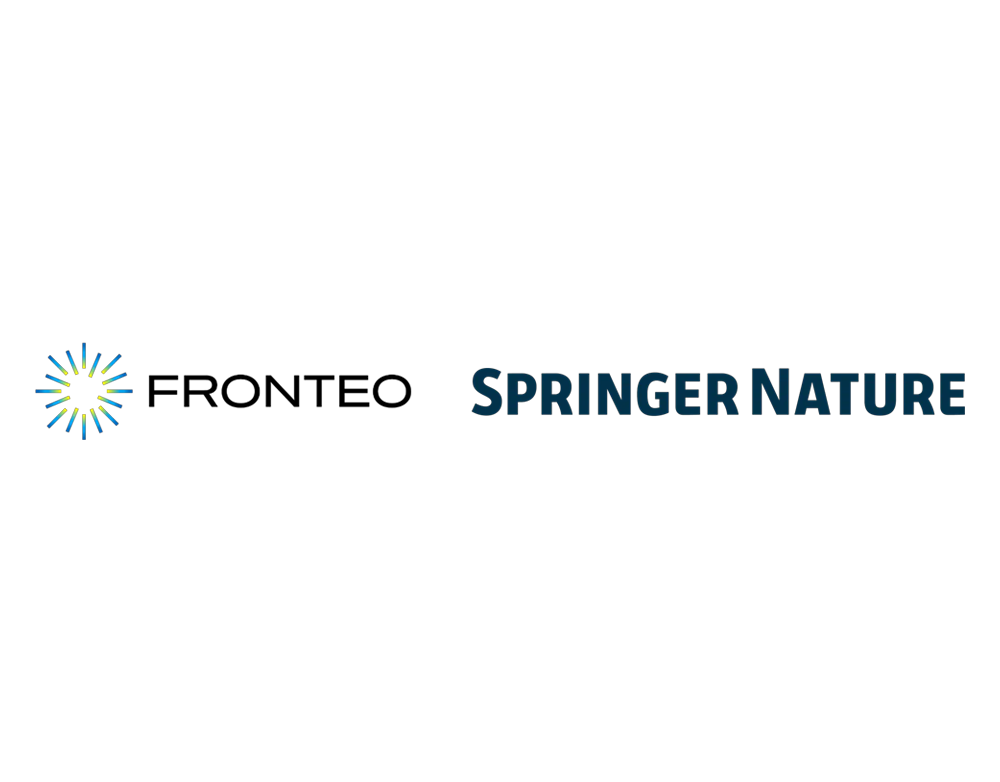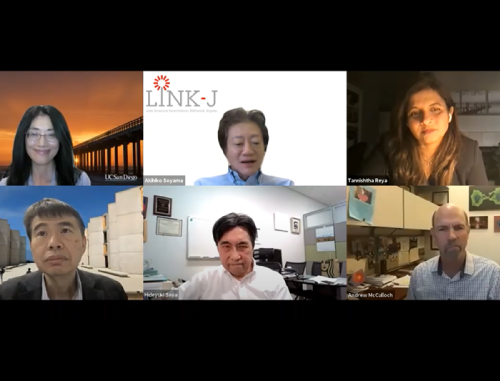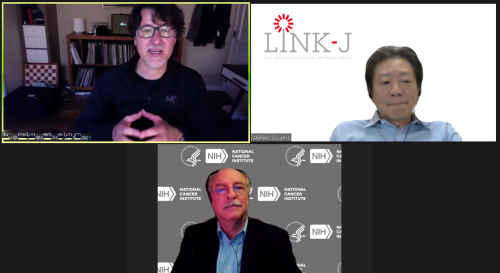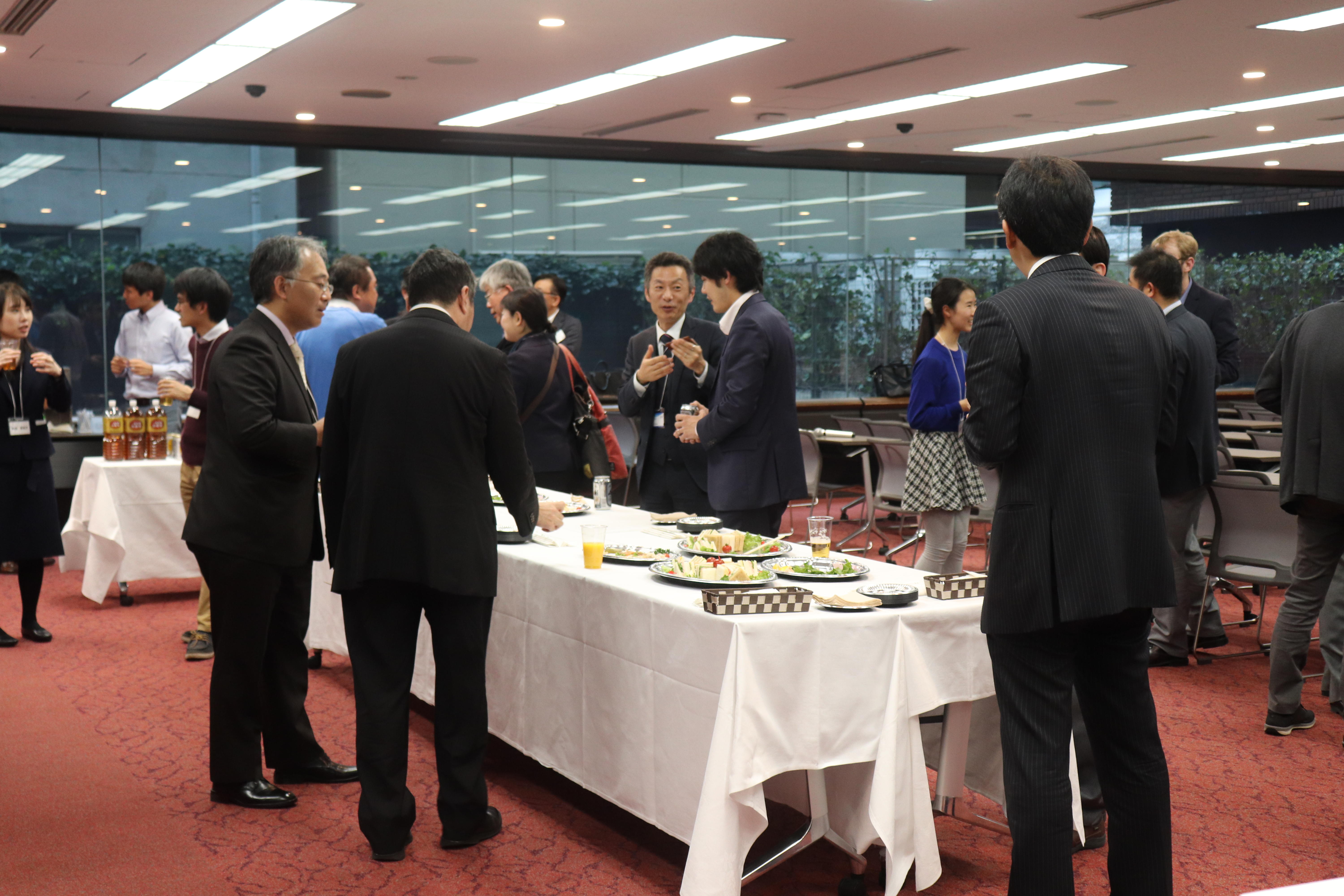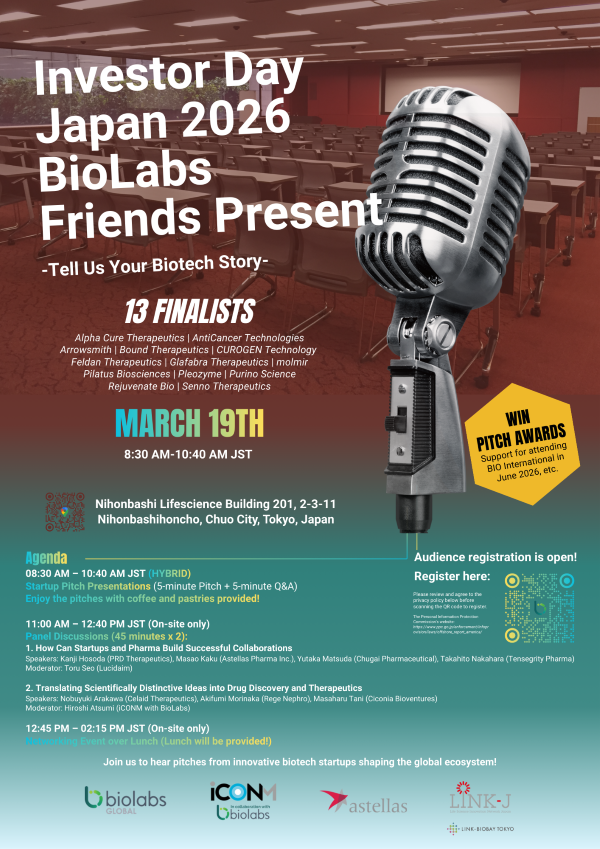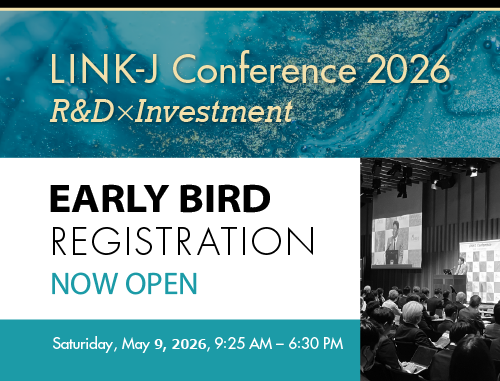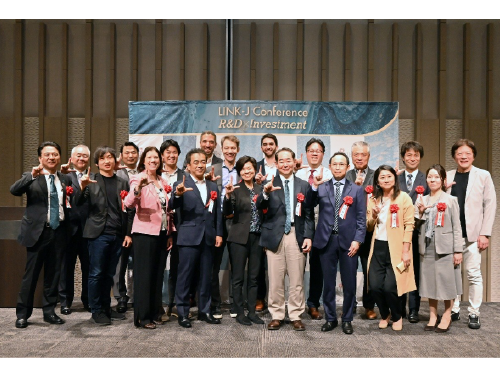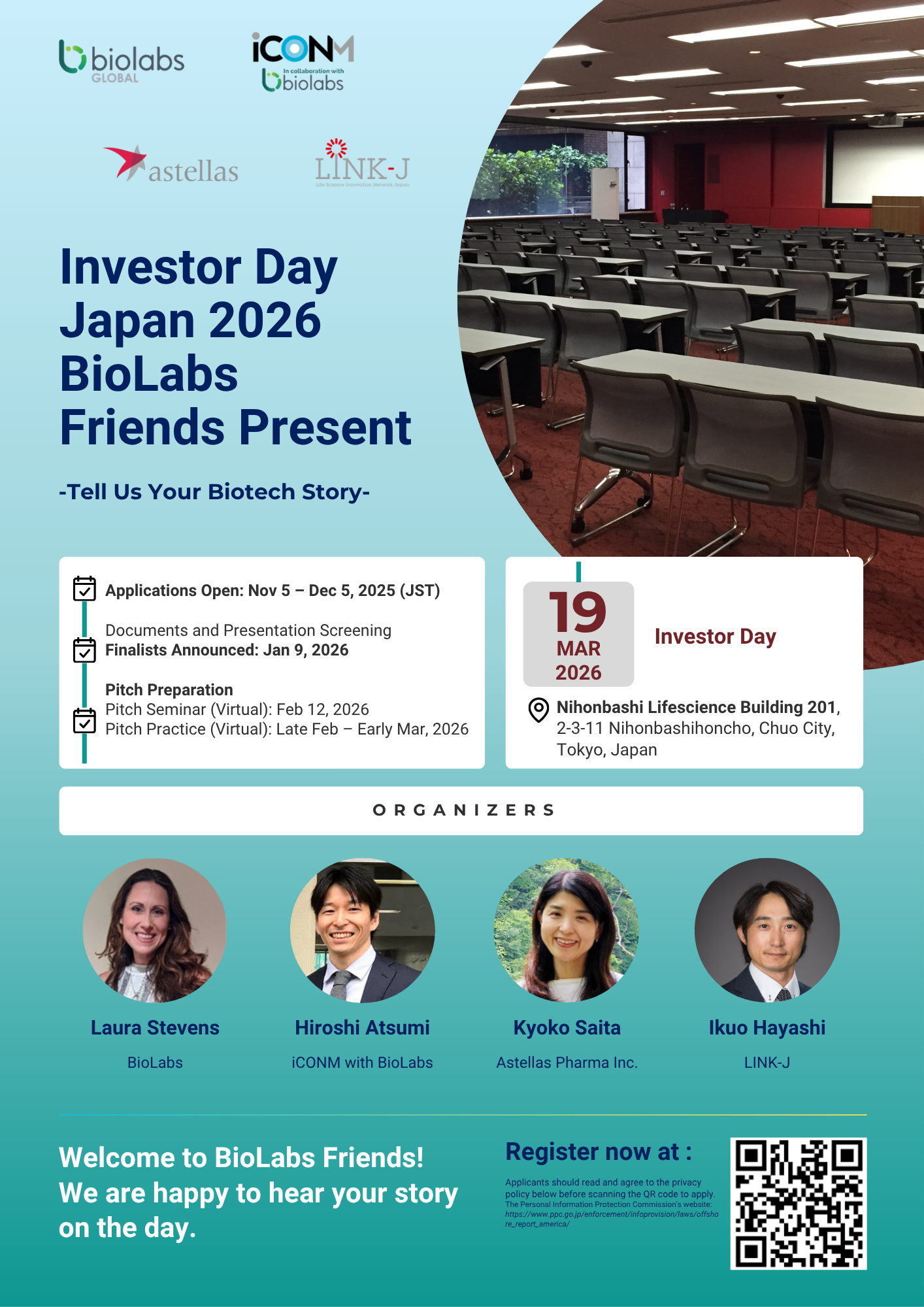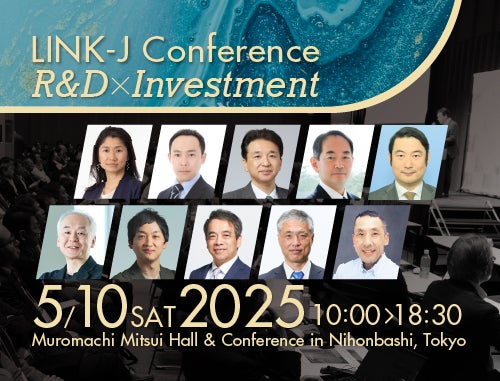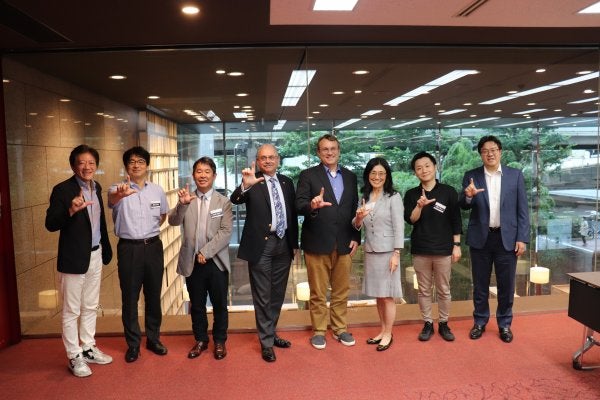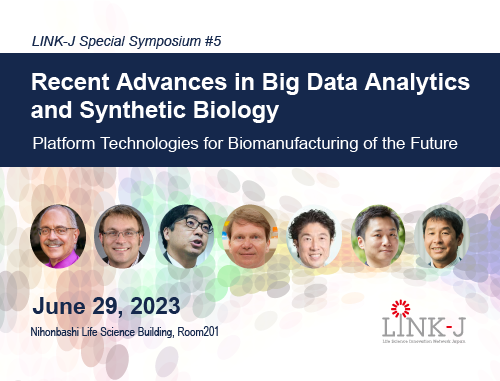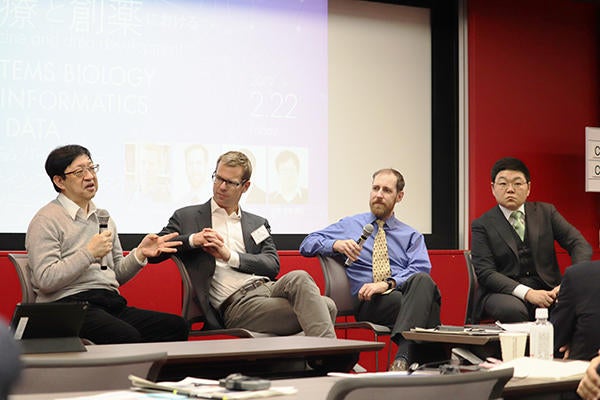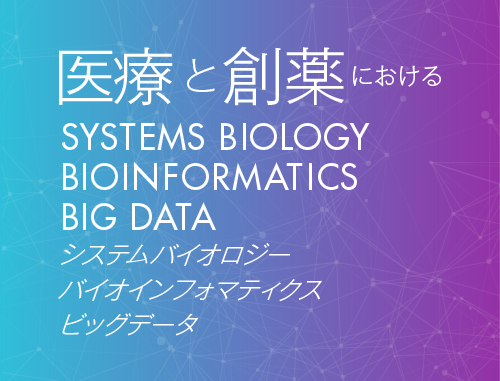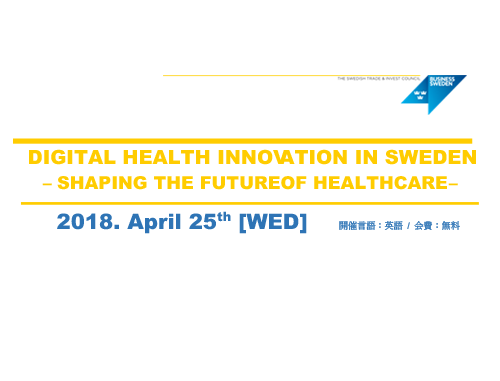LINK-J hosted AI×Life Science at Nihonbashi Mitsui Hall on Wednesday afternoon, May 17. The event ended on a high note with approximately 300 guests in attendance.
The speakers presented on a broad range of topics describing how AI technology will be involved in the field of life science, including examples of utilization in real-world clinical practice as well as current key issues.
Hideyuki Okano, Chairman of the Board of LINK-J and Dean of Keio University Graduate School of Medicine, gave the opening address and showed a promotional video for LINK-J.

Photo: Hideyuki Okano (Chairman of the Board of LINK-J and Dean of Keio University Graduate School of Medicine)
Yuichiro Anzai, President of Japan Society for the Promotion of Science and Chair of Artificial Intelligence Technology Strategy Committee, delivered a speech about the importance of startups support involving academia or business as well as local communities. He encouraged the progress of research that incorporates AI technologies and business communities.

Photo: Yuichiro Anzai (President of Japan Society for the Promotion of Science and Chair of Artificial Intelligence Technology Strategy Committee)
Presided over by Hideyuki Okano, Chairman of the Board of LINK-J, three experts gave keynote speeches under the theme of AI-driven life science innovation.
First, Junichi Tsujii, Director of Artificial Intelligence Research Center, National Institute of Advanced Industrial Science and Technology, spoke about AI that aims to solve social problems and a concept of AI that was able to cooperate with humans. He reported that we had increasingly and skillfully integrated experimental data with our knowledge, especially in the field of life science, and now we could use robots to verify or replicate experimental results. He also mentioned that it was important to work more closely with physicians to advance to the next step in the healthcare field.

Photo: Junichi Tsujii (Director of Artificial Intelligence Research Center, National Institute of Advanced Industrial Science and Technology, Professor Emeritus, the University of Tokyo and Professor, University of Manchester)
Second, spoke Masashi Sugiyama, Director of Center for Advanced Intelligence Project (AIP), RIKEN, located in Nihonbashi 1-chome Mitsui Building, since April 2016. He introduced efforts made by the Center for AIP and expressed his hope that they could research low-cost, high-precision machine learning techniques and collaborate with partners on application research to put it into practical use and create new industries.

Photo: Masashi Sugiyama (Director of Center for Advanced Intelligence Project, Riken and Professor at Department of Complexity Science and Engineering, Division of Transdisciplinary Sciences, Graduate School of Frontier Sciences, the University of Tokyo)
Third, Hiroaki Kitano, President of the Systems Biology Institute (SBI), created additional excitement by proposing a grand challenge for AI to win the Nobel Prize in Physiology or Medicine by 2050. He said that it might become less important in the future if researchers are humans. As for the development of GARUDA, a platform leading to innovations with medical data, he emphasized that he would be addressing the integration of the artificial intelligence system as well as robotics.

Photo: Hiroaki Kitano (President of the Systems Biology Institute [Supporter of LINK-J])
Experts delivered a talk presided over by Professor Toshiya Watanabe, Policy Alternatives Research Institute, the University of Tokyo, on the practical use of AI in medical care for the first half of the session. In the second half, they spoke on the future outlook of AI and life science.
Addressing the theme of practical use of AI in medical care, Rui Yamaguchi, Associate Professor at Human Genome Center, the Institute of Medical Science, the University of Tokyo, stated that while Precision Medicine had increasingly attracted attention, he wanted to work on mass data analysis, algorithm development and analysis of vast amounts of literature data, and utilize genome sequence data in medical care. Studies using Watson for Genomics have reported that AI is remarkably helpful in linking disease-associated mutant genes with compounds.

Photo: Rui Yamaguchi (Associate Professor at Laboratory of DNA Information Analysis, Human Genome Center, the Institute of Medical Science, the University of Tokyo)
Associate Professor Minoru Ko from Keio Medical AI Center (K-MAIC), Keio University, said that he hoped to use information from clinical data in the medical school and gain useful insights into the diagnosis or treatment of diseases for his goal of achieving a society with a long, healthy lifespan. He cited an analysis of fundus imagery as an example of AI utilization in medical care and commented that it could be used practically in clinical practice, even though it was not Big Data.

Photo: Minoru Ko (Keio Medical AI Center (K-MAIC), Keio University and Associate Professor at Department of Systems Medicine Sakaguchi Laboratory, Keio University Graduate School of Medicine)
Nobuyuki Ota, COO of Preferred Networks America, Inc. (PFN America), a company that applies deep learning to IoT, noted that AI was essential for biotechnology and he was undertaking research that aims to enable cancer diagnosis via a drop of blood in cooperation with the National Cancer Center. He also pointed out the shortage of human resources and that the process of analysis by deep learning could become a black box running afoul of the Pharmaceutical Affairs Act.

Photo: Nobuyuki Ota (COO of PFN America)
Finally, Yuki Shimahara, CEO of LPixel Inc., a venture launched by the University of Tokyo, said he was actively pursuing analyses of all kinds of images, including healthcare, pharmaceutical and agriculture, aiming to develop a system specializing in image analysis. To introduce a medical imaging diagnosis support system, he gave examples of utilization in clinical settings, such as a mechanism he was assembling to store training data about everyday clinical practice.

Photo: Yuki Shimahara (CEO, LPixel Inc.)
As for the theme for the second half, the future outlook of AI and life science, Yasuyoshi Watanabe, Director of Center for Life Science Technologies, RIKEN, spoke under the title "Precision Health -- Maximization of Individualized Health." He emphasized his search to promote and enhance health science through integrated research, such as the development of new measuring equipment and Big Data analytics to measure the degree of wellness during a medical checkup.

Photo: Yasuyoshi Watanabe (Director of Center for Life Science Technologies, RIKEN)
Professor Yasushi Okuno, Graduate School of Medicine, Kyoto University, subsequently explained the Life Intelligence Consortium (LINC), a business and academic collaboration composed of 70 bodies, including pharmaceutical and IT companies and universities. He stated that LINC had called for universal themes, from drug discovery research to postmarketing adverse effects, and would launch research projects on 29 of 150 collected subjects from June.

Photo: Yasushi Okuno (Department of Biomedical Data Intelligence, Graduate School of Medicine, Kyoto University)
In the final speech, Professor Toshiya Watanabe, Policy Alternatives Research Institute, the University of Tokyo, said that we needed to address and solve all issues, including AI, Big Data, Copyright Act, patents, Unfair Competition Prevention Act and Act on the Protection of Personal Information, in order to further innovations. He also noted that data was one of the world's natural resources and the establishment of a foundation for industrialization was warranted.

Photo: Toshiya Watanabe (Professor, Policy Alternatives Research Institute, the University of Tokyo [Member of LINK-J Advisory Committee])
Professor Toshiya Watanabe served as the moderator for the panel discussion focused on challenges of the business utilizing AI in the field of life science. Many of the seven panel members (speakers) expressed the opinion that the field of AI was facing a shortage of human resources and human resource development in different areas was likely to be required. Furthermore, they also discussed the establishment of the foundation, including ways to collect and utilize data and the usage of already stored data.

Photo: From the left, Yasushi Okuno, Yasuyoshi Watanabe, Yuki Shimahara, Nobuyuki Ota, Minoru Ko, Rui Yamaguchi, Hiroaki Kitano, and Toshiya Watanabe
The second part of the social gathering kicked off with a toast by Hideyuki Okano, Chairman of LINK-J, and many guests attended and engaged in networking activities. Takashi Ueda, Director of LINK-J and Executive Managing Officer of Mitsui Fudosan, concluded the networking session.

Upper left: Hideyuki Okano (Chairman of the Board of LINK-J and Dean of Keio University Graduate School of Medicine)
Lower right: Takashi Ueda (Director of LINK-J and Executive Managing Officer of Mitsui Fudosan)
We would like to take this opportunity to thank the guests, speakers and everyone involved.
